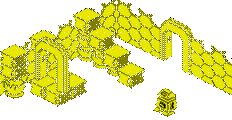Psion Organiser II
Vital Statistics
Introduced
1986 |
|
![]()
What's it like today?
|
Credit: Much of the content in this section has come from the Organiser II Homepage (formerly at http://www.org2.com). This content is reproduced with kind permission from Boris Cornet.
The Psion Organiser II replaced the Organiser I in 1986, with a revised image, better keys, more RAM and 2-line display. The first Organiser had just 2K of RAM and a single-line display.
The Psion Organiser is a small pocket computer, built into a rough trade case small enough to fit into a suit pocket. It had many built-in functions like save/retrieve data, calculator, diary, timekeeping, alarms, etc. It even had a built-in programming language, OPL, similar to BASIC.
There are several variants of the Psion Organiser II, as follows:
Psion Organiser II Model CM
16 x 2 display, 8K RAM, 32K ROM
Psion Organiser II Model XP
16 x 2 display, 16K RAM, 32K ROM
Psion Organiser II Model XP/LA
16 x 2 display, 32K RAM, 64K ROM
The XP had several improvements over the CM. The most important of these is that it can use Rampacks and larger datapacks. Multi-lingual versions of the XP/LA (LA=Language)were developed that support 11 languages. Previously, each machine was hard-wired for a specific language, whereas the XP/LA could be switched between these 11 languages. The larger ROM is required to store the messages in all the languages.
Psion Organiser II Model LZ
20 x 4 display, 32K RAM, 64K ROM
Psion Organiser II Model LZ64
20 x 4 display, 64K RAM, 64K ROM
The LZ has further improvements over the XP, including an enhanced 4-line display that can display 20 characters across, and had a better character set. The LZ also has more menu options, including better file handling options, a notepad, international dialling codes and times, calendar, etc. There are also some new commands in OPL. All LZs support three languages.
POS Variants
POS (Point-of-sale) variants of the Organiser II did not have the built-in organiser functions. Instead, they looked in all fitted packs for an OPL procedure called BOOT. The procedure is run if found. If not, "INSERT PACK" or "PACK?" is displayed and the Organiser switches off. These were often used with other peripherals released by Psion for use with the Organiser, including the Psion Printer, Barcode reader, Magnetic card reader, RS232 link, and Psion Pager.
All models supported expansion through two rear slots and one top slot. Customers could purchase Datapaks, which required a formatter to clear contents from the pack, Rampaks (temporary storage backed up by a coin cell in the pack itself), and Flashpaks (more modern version of a Datapak where the Organiser can format the pack itself). A number of applications were made available by Psion on packs, including a spelling checker and thesaurus, a finance program, a spreadsheet, games, and a travel pack. Many third-party companies also produced software for the Psion on Datapaks.
Psion List prices of accessories (as of July 1991):
Datapak Formatter ($150)
32K Rampak ($105)
128K Rampak ($263)
256K Rampak ($368)
16K Datapak ($45)
32K Datapak ($65)
64K Datapak ($105)
128K Datapak ($200)
Spreadsheet Program Pack ($99.99)
Finance Pack ($80 or $100)
Portfolio Manager Pack ($100)











